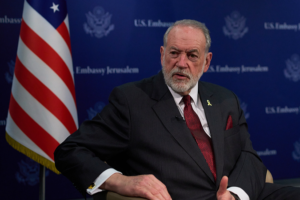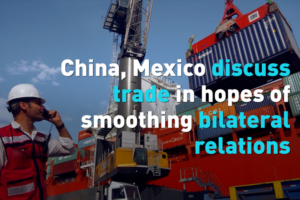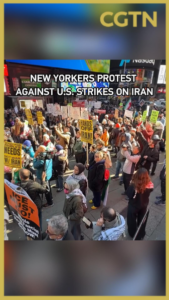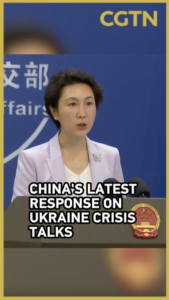
Global Outcry as 94% Condemn U.S.-Israel Strike on Iran: CGTN Poll
A CGTN poll reveals over 90% of global respondents condemn the recent U.S.-Israel military strike on Iran, warning of escalating regional tensions and eroded trust in multilateralism.
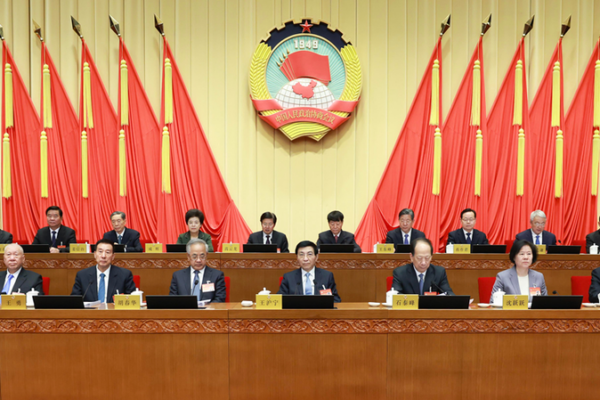
CPPCC Gears Up for 2026 Annual Session in Beijing
China’s top political advisory body prepares for March 4 annual session, reviewing work reports and policy priorities for 2026 development agenda.

US-Israel Strikes Escalate Tensions in Vital Hormuz Strait
Recent US-Israel strikes in Iran escalate disruptions in the Strait of Hormuz, threatening global oil supply chains as major companies suspend shipments.
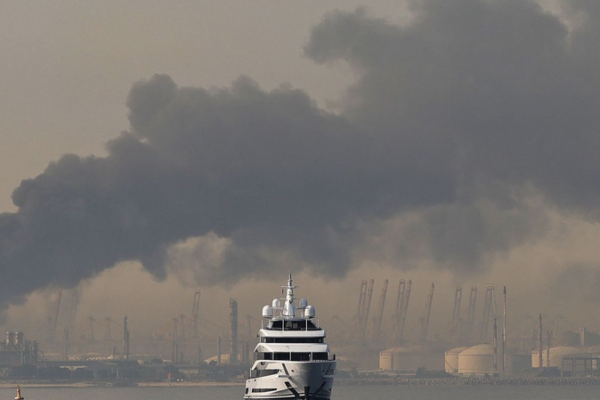
Iran Conflict Sparks Strait of Hormuz Crisis, Global Markets on Edge
Recent military actions in the Middle East threaten global energy supplies and commodity chains, with Iran’s Strait of Hormuz blockade raising fears of prolonged economic disruption.

China’s ‘AI-Plus’ Strategy Fuels Tech Surge in Key Sectors
China accelerates AI integration across industries through state-backed initiatives, with 87% of firms exceeding implementation targets. Sector-wide transformation offers global lessons.
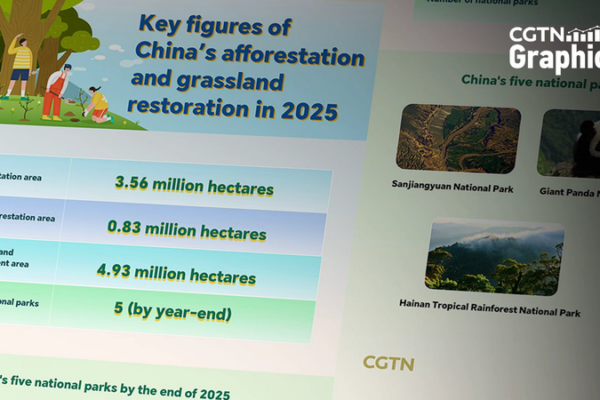
China Surpasses 3.5M Hectares of New Forests in 2025, Boosts Green Agenda
China’s 2025 environmental efforts saw 3.56M hectares afforested and 4.93M hectares of grassland restored, alongside five new national parks, advancing its green agenda.

China Condemns Attack on Iran’s Supreme Leader, Urges Ceasefire
China strongly condemns the attack on Iran’s Supreme Leader Ayatollah Ali Khamenei, urging an immediate halt to military operations in the region.
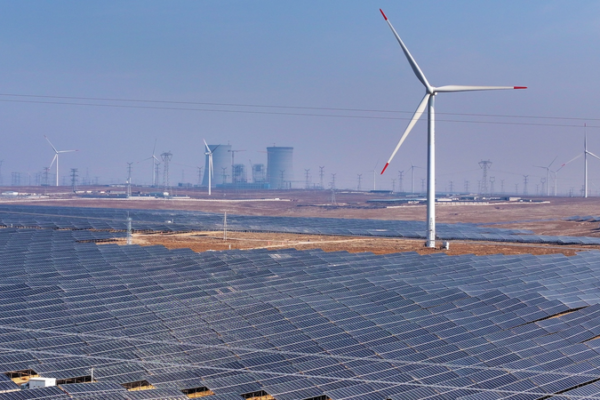
Ningxia Launches 4-GW Solar Project on Reclaimed Mining Land in 2026
Ningxia launches Asia’s largest solar project on reclaimed mining land, channeling 4 GW of clean energy to eastern China in 2026.
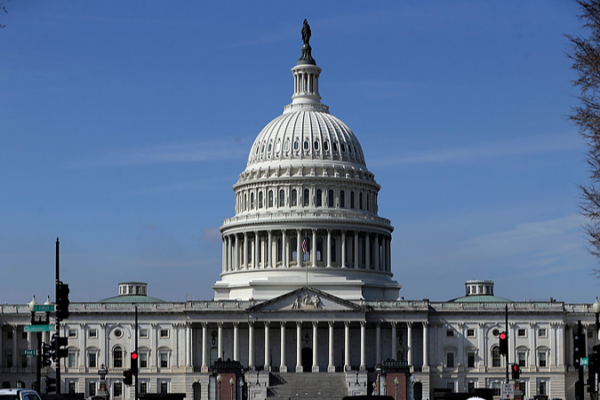
U.S. Strikes on Iran Spark Constitutional Debate, Political Backlash in 2026
Bipartisan backlash erupts as Trump administration’s unauthorized strikes on Iran test constitutional limits and ‘America First’ doctrine in 2026.

China’s Innovation Mosaic Takes Shape Ahead of 2026 Two Sessions
China’s provinces showcase specialized tech strategies in 2026 Two Sessions reports, signaling a shift toward innovation-driven growth and self-reliance.

China, Russia Reaffirm Strategic Partnership in High-Level Diplomatic Talks
Chinese and Russian foreign ministers strengthen bilateral coordination in Sunday phone talks, focusing on trade, security, and multilateral governance challenges.

Brazil Rains Death Toll Reaches 70, Dozens Missing
Heavy rains in Brazil’s Minas Gerais state claim 70 lives, with search operations ongoing for missing persons amid climate concerns.

China’s ‘Hospital Companions’ Bridge Gap in Digital Healthcare
China’s new ‘hospital companion’ profession helps vulnerable patients navigate digital healthcare systems, emerging as a vital social service model in 2026.
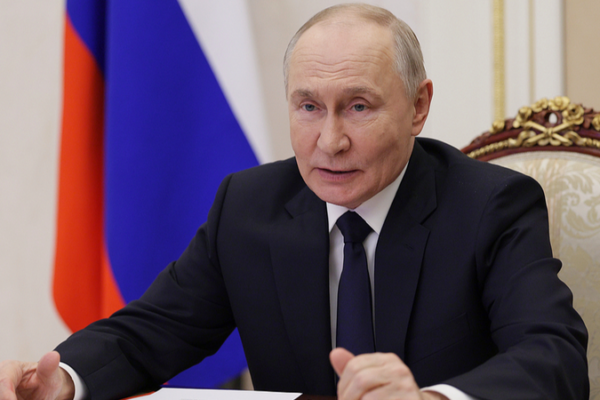
Putin Condemns Killing of Iran’s Khamenei as ‘Cynical’ Murder
Russian President Vladimir Putin condemns the killing of Iran’s Supreme Leader Ayatollah Ali Khamenei, calling it a violation of international law.
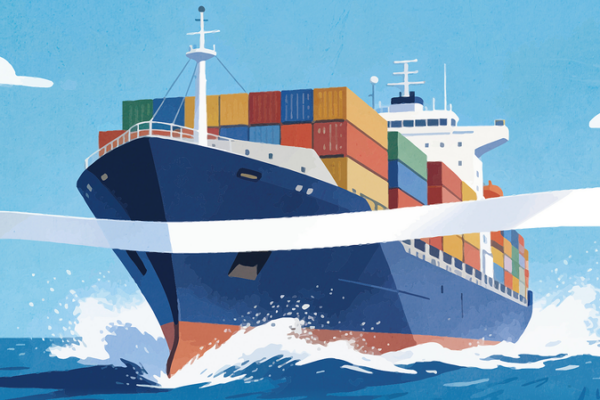
China’s Revamped Foreign Trade Law Takes Effect, Boosting Global Integration
China implements major update to Foreign Trade Law, modernizing regulations for digital commerce and global supply chains in 2026.

U.S. Cities See Widespread Protests Over Iran Strikes, Political Backlash Grows
Anti-war protests erupt across major U.S. cities as politicians criticize recent military strikes on Iran, questioning constitutional oversight and strategic objectives.

Iran in Turmoil: US Strikes Spark Regional Escalation
The death of Iran’s Supreme Leader and subsequent US-led strikes have plunged the Middle East into crisis, with the IRGC escalating military retaliation.

From Altay to Beijing: Grassroots Voices Shape China’s Two Sessions Agenda
Discover how grassroots insights from Altay, Xinjiang, inform China’s national policy discussions during the 2026 Two Sessions, bridging local experiences with national governance.

China’s Two Sessions 2026: Shaping the Next Decade of Policy
As China’s 2026 Two Sessions approach, experts analyze key policy decisions set to influence economic, technological, and cross-strait developments over the next decade.
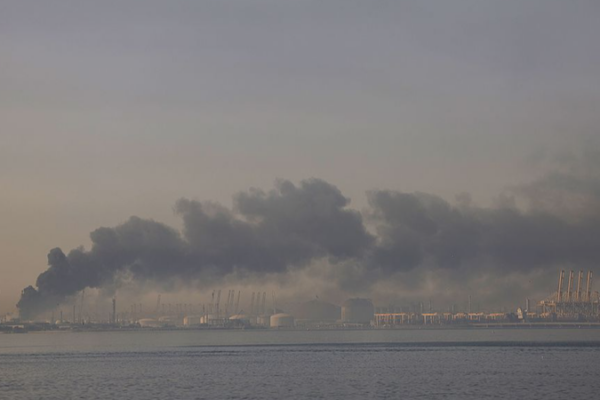
Global Outcry Over U.S.-Israel Strikes on Iran; Calls for De-escalation Intensify
Global leaders and organizations condemn recent U.S.-Israel strikes on Iran, urging immediate de-escalation and diplomatic solutions to prevent regional instability.
